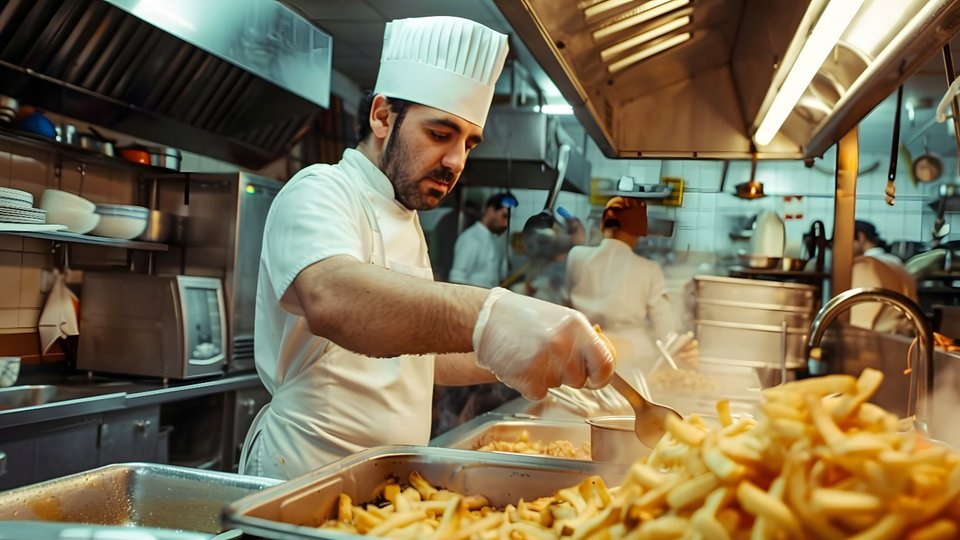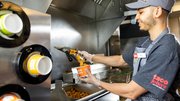Operations
How delivery platforms redefining retail, foodservice industries
The rise of cross-industry collaboration between retail and restaurants signals a shift towards a consumer-first ecosystem.

December 6, 2024 by Zhong Xu — CEO & Co-founder, Deliverect
In a world driven by convenience, platforms like Uber Eats and DoorDash have become household names. What began as services delivering meals from restaurants has evolved into a broad-spectrum marketplace encompassing retail, groceries and even pharmaceuticals. This shift is not just about fulfilling customer demand; it represents a transformative period of cross-industry collaboration that is reshaping the business landscape.
From quick-service restaurants (QSRs) exploring new growth avenues, to partnerships between retail giants and delivery platforms, the integration of these industries highlights a seismic change in how businesses operate and connect with consumers.
QSRs leading the charge: growth through diversification
The QSR industry has long been a trailblazer in embracing innovation. These businesses thrive on efficiency, high volume and adaptability, with delivery platforms providing the perfect vehicle to push the boundaries even further. By partnering with third party delivery apps, QSRs have unlocked access to an extended customer base, often reaching people who may never set foot inside their physical stores.
Now with this promise of furthering their reach in terms of customer base, QSRs are moving beyond traditional offerings as well. Many have begun incorporating retail products, meal kits and branded grocery items into their menus. For instance, chains like Taco Bell offer branded sauces on supermarket shelves. These efforts not only drive incremental revenue but also blur the lines between dining and shopping experiences, enticing consumers to engage with the brand in new and varied ways.
This spillover is influencing adjacent industries like fast-casual dining. Restaurants in this segment are adopting similar strategies, leveraging delivery apps not just for meals but also for curated retail items (think: artisanal sauces or bakery products). The result is a more interconnected food service ecosystem that caters to diverse consumer preferences.
Cross-industry collaborations: innovating for the future
Retail and QSR collaborations are at the heart of this evolution. Traditional boundaries are dissolving as brands come together to meet shared goals: attracting new customers and diversifying revenue streams. Consider how platforms like Uber Eats now offer delivery from grocery stores, liquor shops and even pharmacies, allowing QSRs to team up with these retailers for co-branded marketing campaigns or promotional bundles.
One example is the integration of "shop-in-shop" concepts. Some fast-food outlets now include mini-convenience stores within their locations, offering everything from grab-and-go essentials to exclusive, branded items. This synergy creates an all-in-one experience that appeals to time-strapped customers while increasing overall money spent.
Similarly, partnerships between retailers and restaurants are becoming more sophisticated. For example, high-end grocery stores might collaborate with fast-casual chains to offer exclusive meal kits featuring premium ingredients. Meanwhile, delivery apps are leveraging data analytics to suggest complementary purchases, like pairing a pizza order with a wine delivery from a local shop.
Technology and franchise expansion: the keys to future growth
The future of these industries is undoubtedly rooted in technology. Delivery platforms have always been tech-forward, relying on algorithms, real-time logistics and (more than ever) AI to improve efficiency. As we head into 2025 and beyond, they are exploring even more advanced tools –– such as predictive ordering and virtual storefronts –– to further enhance customer convenience.
Take Little Caesars for example –– the world's third–largest pizza chain's Pizza Portal is a locked, heated locker system that enables order pickup without needing to wait for assistance from a cashier. The solution saves staff time while enhancing convenience for customers. And while the premise seems simple enough, several key challenges arose when developing this pick-up system, like ensuring delivery drivers could quickly and accurately access the Pizza Portal to retrieve orders.
To make this process seamless, Little Caesars turned to technology, developing a custom solution that sends secure locker codes to third-party delivery drivers, allowing for faster access to orders. As the first system of its kind, the Pizza Portal helped to solidify both Little Caesars' position as a global leader in pizza delivery as well as the brand's grab-and-go offerings.
Franchise expansion is another critical piece of the puzzle. As delivery platforms enable even the smallest operators to scale quickly, franchisees are embracing the opportunity to diversify their revenue streams. As global franchise expansion booms, technology sits at the core of successful scaling. Digital tools –– from POS and self-ordering systems to delivery platforms –– empower franchisees to maintain brand consistency while adapting to the unique needs of their local markets.
The consumer-first ecosystem
Ultimately, the rise of cross-industry collaboration signals a shift towards a consumer-first ecosystem. Convenience is king, and businesses that can offer seamless, rich, tech-enabled experiences stand to thrive, with customers benefiting the most from this transformation. The integration of these industries offers them unparalleled access to products and services tailored to their preferences, lifestyles and schedules, whether that means enjoying a meal from a favorite restaurant while shopping online for groceries or discovering a new product bundle curated across industries.
For businesses, the takeaway is clear: the key to staying competitive lies in adaptability, collaboration, and a willingness to rethink traditional boundaries. As the QSR and retail sectors continue to merge and evolve, one thing is certain — convenience is no longer just an advantage: it's an expectation.
With the evolution of technology, these collaborations will only deepen, paving the way for innovations we can't yet imagine. Businesses that embrace this interconnected future will not only survive but thrive, shaping an industry landscape where growth, efficiency, and customer satisfaction go hand in hand.
 ChatGPT
ChatGPT Grok
Grok Perplexity
Perplexity Claude
Claude








